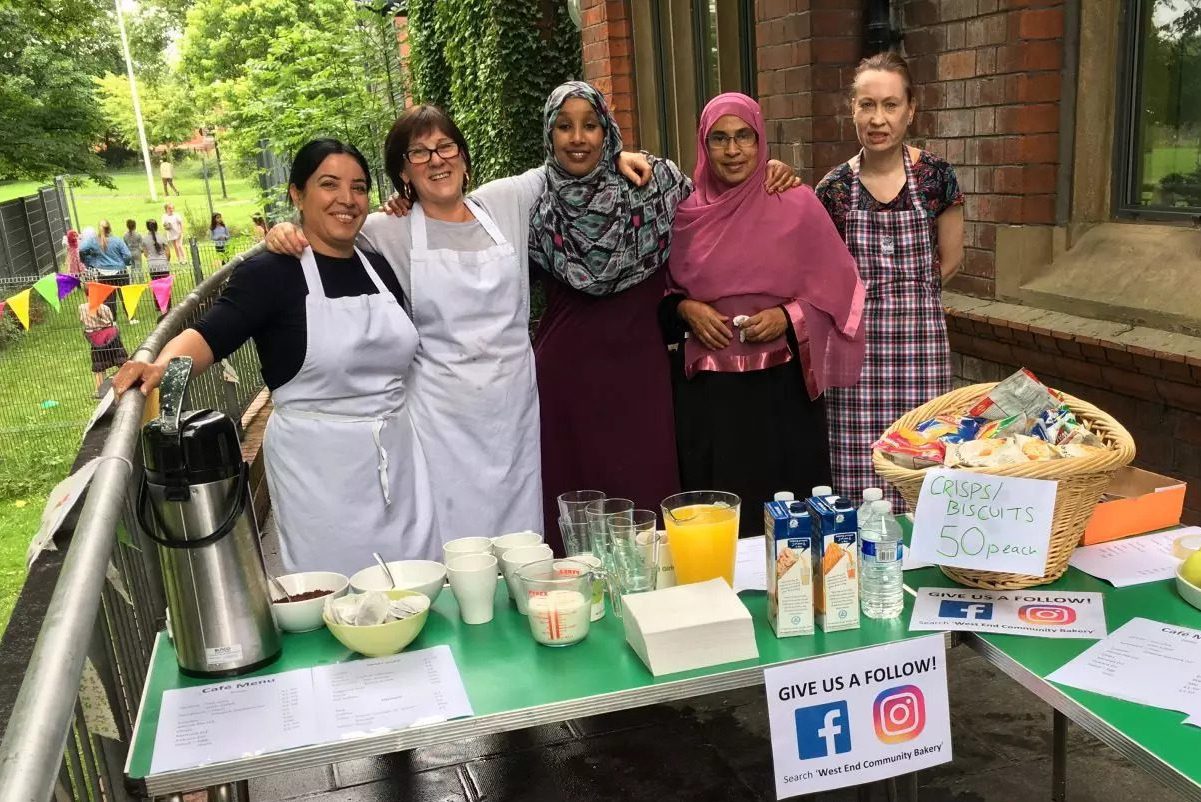The Trust would help communities and fans take ownership of football clubs in crisis and would be funded through broadcast revenue or a levy on the gambling industry.
The Government has put fan ownership in the terms of reference of the long-awaited fan-led review of the game, triggered by the ESL breakaway. The These Clubs are Ours: Putting football into community hands report provides practical steps to make it happen. It includes new research which reveals that:
- Championship clubs are on course to lose £2bn over six years – before the cost of Covid. That puts the game on red alert for more clubs to collapse like Bury FC
- League football clubs are at the heart of the so-called ‘red wall’ political battle-ground – 26 are situated in swing constituencies
The report calls for radical action to tackle the long-standing issues around ownership in the game which has become increasingly remote, out of touch, and untethered from the interest of fans and the local communities in which clubs originate.
The report also demonstrates that football clubs create enormous social value far beyond their traditional fanbase, and must be protected from the very real risk of more clubs facing the same fate as Bury FC – the first to be ejected from the league in 30 years.
The report calls for changes to football through the fan-led review process to ensure better financial management throughout the game, ending the casino culture that incentivises short-term gambling over long-term sustainability.
The community ownership model has proven to be successful in the UK for a range of buildings, businesses and spaces including football clubs like Wimbledon AFC and Exeter City. Accountable to local people, committed for the long-term, community ownership brings a more sustainable approach to financial management.
More specifically the report calls for:
- A £400m Community Club Ownership Trust to purchase clubs in crisis or when they come up for sale. It would give supporters a window of opportunity to raise the capital required for community ownership, by ensuring those with a sensible business plan and genuine appetite and opportunity to take control of their club have the ‘day one’ capital they need. It would be capitalised from a levy on football TV revenue or through a levy on the hugely profitable football betting industry and underwritten by Government. It could put tens of clubs into community ownership in the next decade by issuing long-term loans with favourable repayment terms to supporters’ trusts willing and able to buy clubs in crisis.
- A strengthening of existing Community Right to Bid powers into a more powerful Community Right to Buy. This would give supporters’ trusts or other local groups which mobilise to register their local stadium or ground as an Asset of Community Value vital leverage over club owners seeking to dispose of cherished football grounds.
- A trial of a Back the Fans policy for clubs in administration, to replace HMRC’s preference for liquidation. Given the greater financial sustainability of community ownership over traditional ownership models, HMRC could trial a policy of accepting Company Voluntary Arrangements in cases where a supporters’ trust or similar entity has a viable business proposal and is in a position to take on ownership of the club.
Vidhya Alakeson, CEO of Power to Change, said: “Coming from Wimbledon, where our beloved football club was ripped from the town and transferred to Milton Keynes, I understand very personally how the business of football has come to dominate the game in recent decades. Last week’s announcement of a proposed European Super League was a dramatic illustration of organisers failing to recognise that football clubs are much more than just businesses – they are communities embedded in their local area.
“It is deeply worrying that with such a focus on business and income generation in today’s game so many football clubs find themselves in a perilous financial footing – run for glory rather than long-term sustainability. A new Community Club Ownership Trust has the potential to create both a more financially sustainable approach to football that protects these vital local institutions into the future, and importantly also reconnects them to local fans and communities – without whom there can be no beautiful game.”
Greater community ownership = greater financial stability
These Clubs are Ours: Putting football into community hands outlines new research on the scale of the financial crisis facing football – both before and during Covid – and that community ownership can be an important part of the solution.
Some 45% of football club finance directors said their club’s finances were ‘in need of attention’, and that figure is going up every year. The report also reveals that Championship teams alone are on course to lose £2bn in just 6 years – and that is before the cost of Covid.
The role of greater community ownership:
- It acts as a mechanism to save a loved community asset. Community ownership models have repeatedly stepped in to save clubs from liquidation or grounds from being sold off.
- It fosters accountability between the club and the community. An institution like a football club should benefit the community that supports it. Owners of football clubs are custodians of beloved institutions, and community ownership ensures that duty is taken seriously.
- It puts clubs on a more sustainable financial footing. Community-owned clubs, like many other community-owned organisations, are run for the long term – and are therefore less likely to bankrupt themselves chasing immediate glory. It is a model with a future.
- It helps clubs achieve direct community impact. From the Dons Local Action Group, to FC United’s community work and Hearts wearing their commitment to social value literally on their shirts, these institutions have enormous potential to do good in their communities.
FSA’s Head of Governance, Ashley Brown, said: “We welcome these proposals from Power to Change, the Government has opened the debate on supporter ownership and finding ways to assist supporters to do so will be key. The FSA has long campaigned for the protection of clubs and football assets such as grounds, added protection and funding is required to ensure no more our lost from our national game.”
Community ownership success stories
Exeter City FC: from Greek tragedy to community triumph
In 2003, Exeter City Football Club was relegated from the football league with club finances so dire it was forced into a Company Voluntary Arrangement (CVA) and its Chair and Vice Chair were arrested.
However, 2003 marks a decisive turn in Exeter’s history. In February the Exeter City Supporters Trust formally changed its constitution in order to seek full ownership of the club; by September a cheque for £20,000 was handed over and the club was theirs.
The asset they bought faced debts of £4.5m, and there the real work began. The Directors and Trustees negotiated a CVA which would pay 10p in the pound, (this eventually turned out to be 7.1p in the pound) to creditors. At the same time, volunteers set about getting the ground up to playing standard and doing all the things that hadn’t been done for many seasons in the way of maintenance.
There were challenging times, with a series of months where the Trust had to support the Club to the hilt and beyond and deal (albeit indirectly) with several organisations that it felt sought to hasten its demise. But the highs outweighed the lows. The membership of the Trust grew to and sustained itself well beyond a membership of 2000.
Then, in 2005 – in a moment of scarcely believable footballing romance – the struggling club played Manchester United at home in the FA Cup, and drew the match, sending the tie into a money-spinning replay at Old Trafford. The two games would net the club £1m and help see off what remained of the debt by the end of the year. The club has remained community-owned ever since
Exeter’s longevity is, sadly, rare. The Trust pinpoints two key factors that have allowed fan ownership to continue to flourish:
“Firstly, the consistent support, today, of well over 3,000 members, a number of whom have donated generously and regularly since the year 2000. This contrasts vividly with other Trusts, where once the most immediate events of crisis have gone they start to lose membership. Secondly, the Exeter Trust has had a regular influx of new Trustees who have brought many new skills and expertise to help the Trust operate.”
AFC Wimbledon: from outrage to outstanding
The Wimbledon story is utterly unique. After almost a hundred years in non-league football, the club flew up the football pyramid and to national prominence in the 1980s with an idiosyncratic group of players collectively known as the Crazy Gang. Although their brand of football was not always easy on the eye, the results were astonishing, culminating in a succession of top 10 finishes in the old First Division, and in 1988 an FA Cup victory.
After this romance of a small club making dreams come true, for the supporters the slump that followed was unimaginable. In 2000 the club was relegated after 14 years in the top flight, but in truth – as we see again and again in football – what happened on the pitch was only part of the story. There had been strange rumours surrounding the club for years. Their central problem had been unorthodox financial management and the fact that they never owned a ground capable of hosting top-flight football. In the 1980s there were rumours of a South London amalgamation club, and in the 1990s there was even talk of relocating the club to Dublin. That plan was fought off, but in 2003 the club was relocated to Milton Keynes. The community in Wimbledon had not just lost their club – to fans it had been stolen.
In response, the supporters behind Dons Trust simply started again. As the deal to move to Milton Keynes was agreed, AFC Wimbledon was established. The Trust is not only committed to ensuring the sound running of the club, but also, to “strengthening the links between the club and the community of Wimbledon and the surrounding areas”.
Today, the club is one of the highest placed supporter-owned clubs in league football (like their predecessors, they have raced up the pyramid from the very bottom). And, with the club back in Merton its community arm (the Dons Local Action Group) is one of the very best in the country. In a single week during the Coronavirus crisis, 2,000 volunteers distributed more than 150,000 food packs. They play a huge local role in combatting local digital poverty, distributing laptops to children in the community. And they frequently work with a range of partners, including the local authority, to use their unique reach to help some of the most deprived communities in the country.
There is no question that the Dons Trust, AFC Wimbledon and its wider supporter base are motivated by a clear defining purpose, built in part from the history of the old Wimbledon FC and in part from the unique circumstances of its foundation. The club was explicitly established and defined against the sort of club ownership model that can see a team ripped out of its community. But even here, the financial demands of running a club came close to tipping the supporters towards external finance, as the team sought to secure a home ground worthy of its aspirations.
Nevertheless, AFC Wimbledon remains solely in fan ownership. The fans held on – and now, incredibly, after raising £7.5m through the Plough Lane Bond Scheme AFC Wimbledon is moving back home, to a new 9,300 seat stadium, in a deal pushed through by the fans for the club they love to bring it back to a permanent base in their local community.



